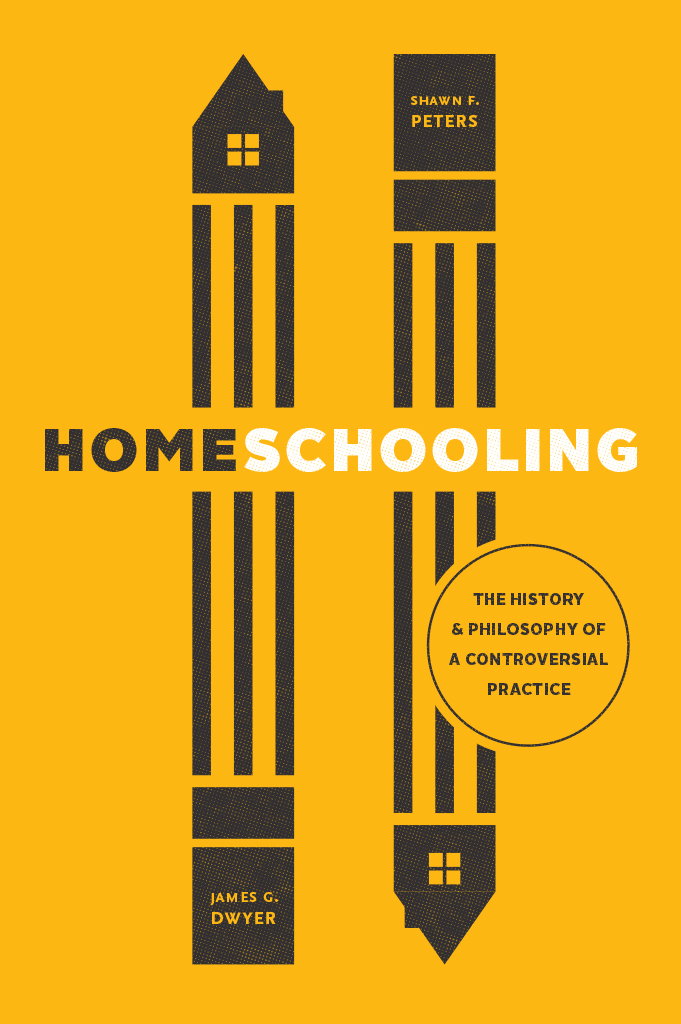
Homeschooling
The History and Philosophy of Education Series
EDITED BY RANDALL CURREN AND JONATHAN ZIMMERMAN
PATRIOTIC EDUCATION IN A GLOBAL AGE by Randall Curren and Charles Dorn
THE COLOR OF MIND: WHY THE ORIGINS OF THE ACHIEVEMENT GAP MATTER FOR JUSTICE by Derrick Darby and John L. Rury
THE CASE FOR CONTENTION: TEACHING CONTROVERSIAL ISSUES IN AMERICAN SCHOOLS by Jonathan Zimmerman and Emily Robertson
HAVE A LITTLE FAITH: RELIGION, DEMOCRACY, AND THE AMERICAN PUBLIC SCHOOL by Benjamin Justice and Colin Macleod
TEACHING EVOLUTION IN A CREATION NATION by Adam Laats and Harvey Siegel
Homeschooling
The History and Philosophy of a Controversial Practice
James G. Dwyer and Shawn F. Peters
The University of Chicago Press
Chicago and London
The University of Chicago Press, Chicago 60637
The University of Chicago Press, Ltd., London
2019 by The University of Chicago
All rights reserved. No part of this book may be used or reproduced in any manner whatsoever without written permission, except in the case of brief quotations in critical articles and reviews. For more information, contact the University of Chicago Press, 1427 E. 60th St., Chicago, IL 60637.
Published 2019
Printed in the United States of America
28 27 26 25 24 23 22 21 20 19 1 2 3 4 5
ISBN -13: 978-0-226-62711-3 (cloth)
ISBN -13: 978-0-226-62725-0 (paper)
ISBN -13: 978-0-226-62739-7 (e-book)
DOI : https://doi.org/10.7208/chicago/9780226627397.001.0001
Library of Congress Cataloging-in-Publication Data
Names: Dwyer, James G., 1961 author. | Peters, Shawn Francis, 1966 author.
Title: Homeschooling : the history and philosophy of a controversial practice / James G. Dwyer and Shawn F. Peters.
Other titles: History and philosophy of education.
Description: Chicago ; London : The University of Chicago Press, 2019. | Series: The history and philosophy of education series | Includes bibliographical references and index.
Identifiers: LCCN 2018050262 | ISBN 9780226627113 (cloth : alk. paper) | ISBN 9780226627250 (pbk. : alk. paper) | ISBN 9780226627397 (e-book)
Subjects: LCSH: Home schoolingHistory. | EducationParent participation. | Education and state.
Classification: LCC LC 40 . D 994 2019 | DDC 371.04/2dc23
LC record available at https://lccn.loc.gov/2018050262
 This paper meets the requirements of ansi/niso z39.48-1992 (Permanence of Paper).
This paper meets the requirements of ansi/niso z39.48-1992 (Permanence of Paper).
Contents
Threat to democracy, or bulwark against tyranny? Enslavement of the mind, or last refuge of human independence? Stunting of childrens social development, or more natural and nurturing site of cooperative interaction? Violation of childrens rights, or recognition of parental entitlement? Homeschoolingpervasive in colonial times, an anomaly a half century ago, today a national movementnow has this two-faced nature, one ugly and threatening as seen by critics, the other beautiful and wholesome in defenders eyes. The reality is that today it is no one thing. Nearly two million children in the United States are now being homeschooled instead of attending what we will call a regular school, private or public. That is 4 percent of all US children, about the same percentage as those attending Catholic schools. The overarching authority of the Catholic Church creates some uniformity among its parochial schools, whereas there is little standardizing of homeschooling, and so the latter takes on innumerable, extraordinarily diverse forms, reflecting the multiple reasons parents have for choosing it. Parents motivations range from those everyone would grant are noble (even if detractors say they are misguided) to those everyone would grant are condemnable (e.g., the concealment of horrible child abuse). In addition, a significant number of parents simply do not send their children to any school and make no effort to provide homeschooling instead. They might be mentally ill, want the children working to earn money for the family, fear investigation by Child Protective Services or the Immigration and Naturalization Service, or have some other reason. And, in most states, permissive homeschooling laws enable these parents to do this with impunity, because the laws require no real oversight of homeschools; indeed, many do not even require parents to notify school officials of an intent to homeschool.
This is the paradox for legislators and state education officials: homeschooling can work very well, but authorizing it can also put some children in grave danger. Is it possible to facilitate good homeschooling without also enabling physical maltreatment and educational deprivation? Overwhelmingly, state legislatures in this country have chosen to give parents who wish to homeschool complete and unsupervised power and freedom, leaving children unprotected from the unknown number of parents who are seriously neglectful or abusive. Does this legislative choice arise from defensible principles or from political expedience and cowardice?
The complexity of the subject makes homeschooling intriguing for historians and challenging for philosophers. The historian aims to understand and describe an infinitely varied phenomenon, and the philosopher seeks neat, normative conclusions about the permissibility of a practice whose consequences and underlying intentions differ considerably from one family to the next. This book is a unique pairing of these two disciplinary approaches to the subject. First, the historian (Peters) traces the evolution of homeschooling and the law relating to it, from before Americas founding to the present day, in the process uncovering the many arguments proponents and detractors have made for and against it. Then the philosopher (Dwyer) applies a moral framework constructed from the best account of what rights and duties the three players in the dramathe child, the parent, and the state (as parens patriae protector of the child or as agent for society as a whole)possess, to analyze the competing arguments and ultimately generate a prescription for state policy. Is homeschooling today inherently deficient relative to regular schooling, as some assert, and if so should the state eliminate it as an alternative and insist that all children attend a regular school (itself a quite varied phenomenon)? Or can homeschooling actually be not only an adequate form of education but also even superior in some ways to regular schooling, and if so should the state at least tolerate it and perhaps even encourage and subsidize it? Ultimately, does it matter whether the rest of society approves of it and state education officials pass positive judgment on it, or are parents entitled, morally or constitutionally, to choose homeschooling for their children regardless of what anyone else thinks? Are homeschooling advocates justified in asserting that the state has no authority over childrens education or that its authority is limited to guarding against serious physical abuse (somehow without intruding into family life)? Or are critics correct in maintaining that homeschooling, even if it can be adequate, makes children too vulnerable to educational and social deprivation and maltreatment, so close supervision or even prohibition of it is required? And do children themselves have any rights in connection with their education? If so, who gives content to those rightsparents or the state?
In practice, the states answer to these questions has varied over time, as the historical account makes clear, and still today there is some variation in degree of regulation across jurisdictions. Does this reflect an inscrutability in the moral issues as a theoretical matter, or can careful philosophical analysis yield definitive answers to these questions? The task of this book is to shed new light by combining the historians nuanced observation with the philosophers normative analysis.
Next page
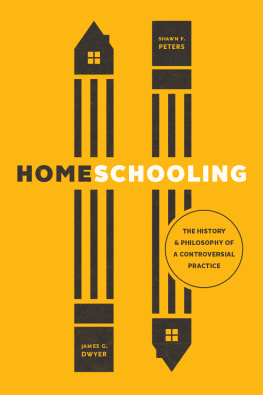
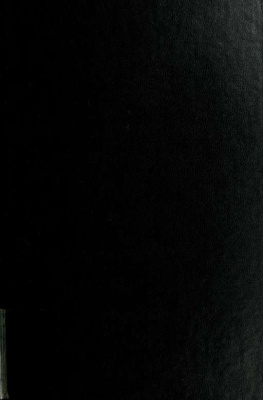
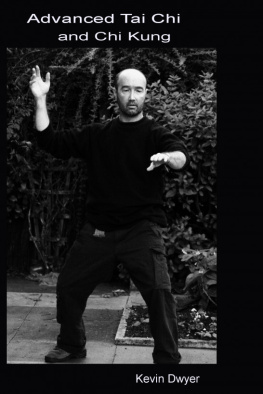

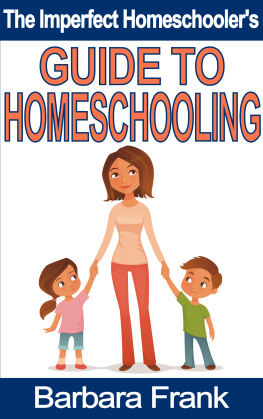

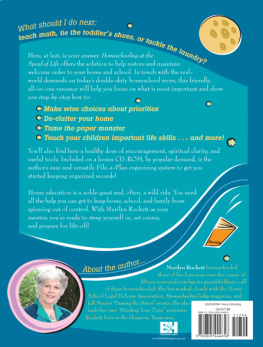
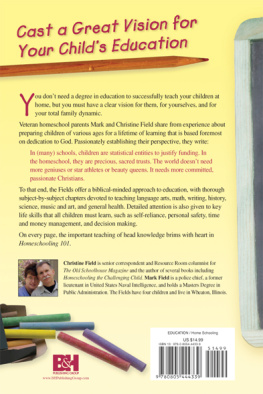
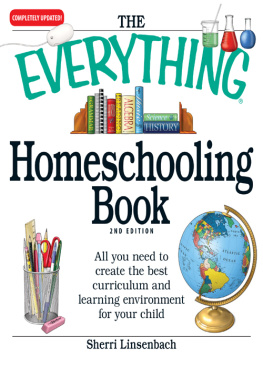


 This paper meets the requirements of ansi/niso z39.48-1992 (Permanence of Paper).
This paper meets the requirements of ansi/niso z39.48-1992 (Permanence of Paper).